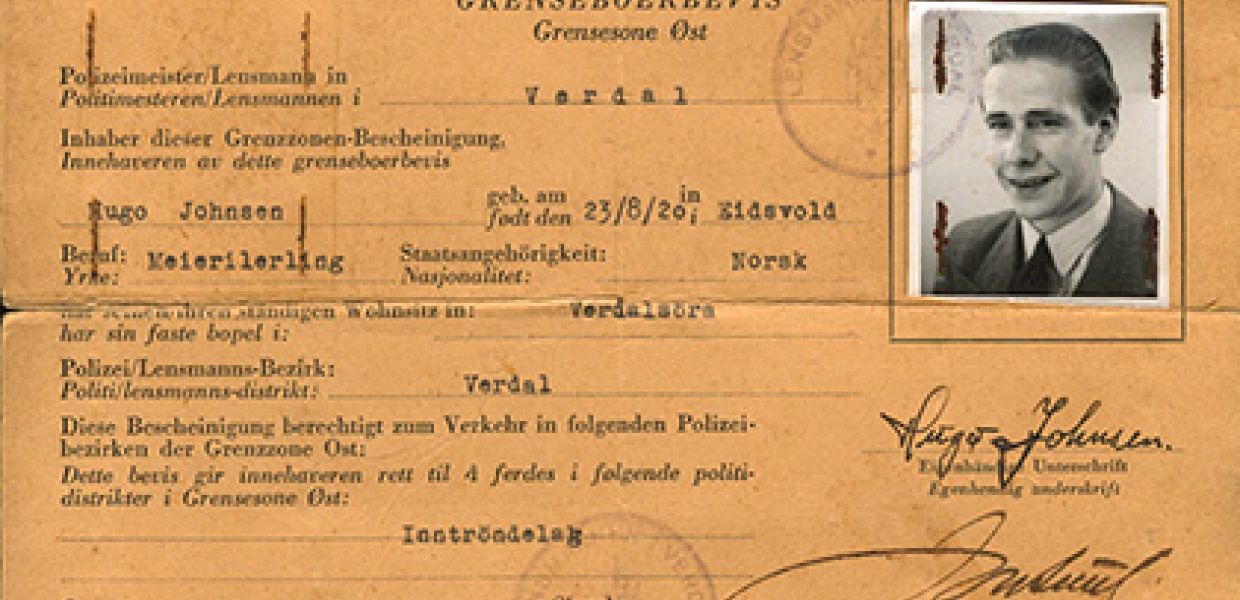“Hello Mum, can you hear me? I am here in Narvik.”

This post is by Sarah McSeveny-Åril, senior advisor digital cultural heritage at the Arts Council Norway.
“…Everything is going very nicely, I’m pretty busy and I don’t get much sleep but it is nice interesting work.” Listen to a recording of the interview in English and Norwegian...
British Lieutenant Job sends a 'shout out’ home to the UK at the end of a radio interview (minute 03.18) with the Norwegian Broadcasting Corporation’s (NRK) regional office in Tromsø. This broadcast was made in June 1940, only a couple of months after German soldiers had invaded Norway. Here speaking with an air of joviality on his efforts following the recapture of Norwegian costal municipality Narvik, Job is oblivious to the fact that the war was only just beginning.
This is but one of 1,3 million digitised objects from Norway’s cultural heritage available on Europeana.eu. Norway is the 9th largest contributor to europeana.eu, with the Arts Council Norway being one of the main aggregators of this data. Many of these images are free from copyright restrictions and can be freely re-used by anybody to create new works, use in applications, blogs, virtual exhibitions and much more.
This year 17 May will mark the bi-centennial anniversary of the Norwegian Constitution. As part of the national celebrations, the Arts Council Norway plans to launch a campaign to raise awareness of Europeana that encourages people to explore and learn about one of the particularly important periods of Norway’s history in the past two hundred years – the Second World War. The aim of the campaign is to use Europeana to reveal the untold stories of this time, and bring to light information that will help fill in the gaps in Norway’s history.
The Norwegian public will be invited to help tell these untold stories of the war through the creation of digital stories by using material available via Europeana from Norway and from sources in other countries in Europe.
What was it like for the Norwegian paratroopers training with Scottish allies in Woodhaven, Scotland? How many of them made the jump and survived to tell their story?
What was the story behind the fake papers for so-called ‘Hugo Johnsen’ in this ID card from 1942?
And will we ever find out the name of to the smiling German military cook in the picture, who had made such an impression on the local Norwegian community during the time they were stationed that he was invited to join them in the town’s parade to celebrate Norway's national day in May 1945, two months after the war had ended? Explore an example from the digital storytelling platform DigitaltFortalt.no (in Norwegian)...
These potential narratives reflect a spectrum of experiences and personal histories that together contribute to our understanding of Norway’s story and the nation’s identity, during this turbulent period.
This campaign is part of a series of awareness raising initiatives related to the European project, EAwareness. As part of this campaign, The Arts Council will organise digital storytelling workshops and an Open Archive Day. The aim is to will stimulate a ‘treasure hunt’ in the archives of Europe via Europeana, and encourage the contribution and production of new material. The activities will focus on finding and generating knowledge about the more sparsely documented events surrounding burnings and evacuations of Northern Troms and Finmark, and the role of the Sami peoples in Norway’s war effort. All of which aims to contribute to and help convey the nuances of our common European memory.
Further information on the planned the open workshops in Troms and Nordland, and the Open Archives Day to be held in June, will be made available shortly.
